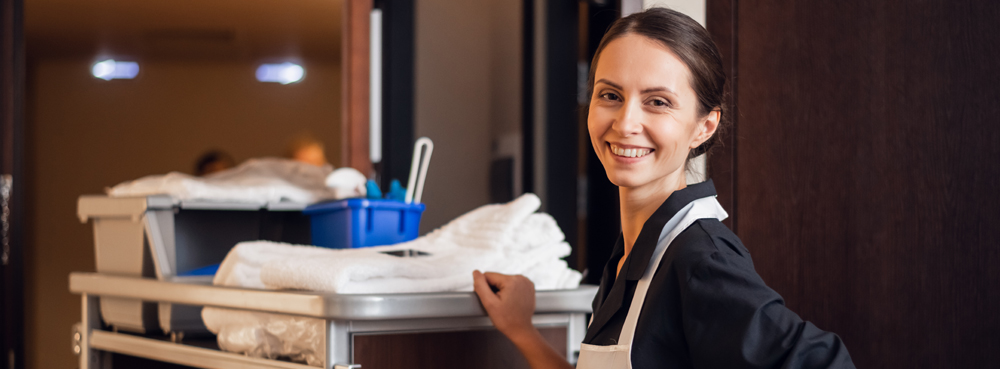
Guests’ happiness is always the most important thing in the fast-paced world of hospitality. But behind the scenes, following safety rules and operating standards is just as important. Keeping a hotel, resort, or event space safe and in line with the rules is important for keeping both customers and staff safe. Compliance is a team effort for Orlando companies that depend on hospitality staffing. Management, staff, and service providers all work together to ensure compliance.
Understand Industry Regulations
The first step in ensuring compliance is having a thorough understanding of industry regulations. In hospitality, this can include OSHA (Occupational Safety and Health Administration) standards, local health codes, fire safety requirements, and ADA (Americans with Disabilities Act) guidelines. Management should maintain updated documentation of these regulations and ensure that every team member—whether permanent or temporary—understands the standards that apply to their role.
Regularly reviewing policies ensures that compliance doesn’t become an afterthought. This is especially important for properties in busy tourist destinations like Orlando, where hospitality environments face high guest turnover and frequent inspections.
Partner with Reliable Staffing Providers
Staffing plays a major role in maintaining compliance and safety. If your business relies on hospitality staffing in Orlando, choosing a partner who understands local regulations and industry best practices is key. A reliable staffing provider will:
- Pre-screen candidates for relevant skills and certifications
- Provide ongoing training for safety and compliance
- Ensure background checks and reference verifications are completed
This proactive method lowers the chance that workers who aren’t trained or experienced will not follow the rules.
Prioritize Health and Hygiene Standards
In hospitality, cleanliness is more than a visual impression—it’s a safety requirement. From kitchen sanitation to guest room cleanliness, strict hygiene standards must be followed at all times. Housekeeping teams should be trained in the correct use of cleaning agents, proper waste disposal, and sanitization procedures, especially in high-touch areas.
Additionally, staff should be educated on personal hygiene practices such as frequent handwashing, correct use of gloves, and proper uniform care. When hygiene standards are consistently met, businesses not only maintain compliance but also build guest trust.
Implement Regular Safety Training
In the hotel industry, safety is more than just following the rules. It’s also about making sure that everyone on the team knows what they need to do to keep accidents from happening. Regular training should cover things like how to get out of a building safely in case of a fire, how to handle chemicals safely, and how to communicate in an emergency.
For larger properties, conducting safety drills ensures that staff know exactly what to do in the event of a fire, medical emergency, or security incident. Training should be updated whenever new equipment, layouts, or safety policies are introduced.
Maintain Accurate Records and Documentation
Audits, inspections, and guest complaints often require businesses to provide proof of compliance. Maintaining detailed records—such as safety inspection reports, employee training logs, and cleaning schedules—demonstrates a commitment to meeting industry standards.
It is easier to keep track of and get compliance data when you need it with digital record-keeping tools. This makes sure that even short-term workers are recorded as having received the necessary training for companies that use temporary or seasonal staff.
Conduct Regular Inspections
Internal inspections are one of the most effective ways to ensure that compliance and safety procedures are being followed consistently. Managers should schedule routine walk-throughs of guest areas, kitchens, storage spaces, and employee workstations. Inspections like these help find possible dangers before they become big problems.
Having a checklist based on regulatory requirements ensures nothing is overlooked. This proactive approach can also prevent costly fines and reputational damage.
Encourage a Safety-First Culture
Compliance is not just about rules—it’s about mindset. Encouraging staff to take ownership of safety creates a work culture where employees look out for one another and for guests. Management should welcome feedback from staff about potential risks and reward proactive safety measures.
Open communication ensures that issues are addressed quickly, whether it’s a spill in a hallway or faulty kitchen equipment. When everyone plays a role in maintaining safety, the entire operation runs more smoothly.
Conclusion
Compliance and safety in hospitality require careful planning, consistent training, and strong partnerships. For businesses relying on hospitality staffing in Orlando, working with skilled and knowledgeable professionals ensures that safety standards are upheld without compromising service quality. By focusing on regulations, training, inspections, and a culture of safety, hospitality businesses can protect their guests, staff, and reputation—while delivering an exceptional guest experience every time.





